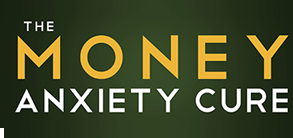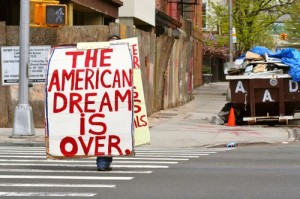The good news is there is more wealth in the world than ever before. According to a recent survey by Oxfam, the bad news is the wealthiest 1% will soon own more than the rest of the world’s population. Agreeing that the scale of global inequality was “simply staggering,” executive director Ms. Winnie Byanyima, said in an interview with the BBC Business Online she would use the charity’s high-profile role to demand urgent action to narrow the gap between rich and poor.
Despite the recent economic growth here in the U.S, the median family income in 2014 was a full 6 percent lower than the median family income just 14 years ago, in 2000. In fact, many Americans are living on paychecks that are 15-35% smaller than they were at that time, according to Robert Shapiro, former economic advisor to President Clinton. As an immigrant, I often felt like my family would never emerge from our middle class struggles toward upward mobility. We did struggle, and even went bust during the real estate recessions of the 70s, 80s, and 90s — starting over again and again.
The Middle Class Issues have been the media buzz words this past week. In Obama’s State of the Union speech, Hillary Clinton’s national campaign, and even in Sarah Palin’s own perplexing speech, we hear the plight of the middle class struggles.
At first I was indignant that 1% should have so much while the 99% survived in one way or another. Then it dawned on me — I am in the 1%, as are some of my friends and colleagues. A buddy of mine, Robert May, is an entrepreneur, artist, and a well-traveled art history scholar with whom I just had lunch. I value his integrity and his wisdom, so I asked about his reaction to the Oxfam report and if he had any tips on how to get out of the cycle of poverty here in the U.S. His response was interesting. Robert said, “I worked in construction since I was 17 years old, saved my money and started investing early. Luckily, I had great mentors who guided me in the right direction. My dad, as much he loved me, never rescued me financially, so I felt empowered and that I must learn how to make it.” I can relate to his story. My single mom was an Iranian immigrant who received no child support, and who worked smart and raised three of us on her own. Her hard work ethic and ability to balance work and home made her incredibly successful.
Not everyone I know is so fortunate. My observation as a teacher of Mindfulness and Money workshops allows me to see clients and friends living paycheck to paycheck, or unemployed because their former position was eliminated, and who do not have the skills needed for the hi-tech jobs now available. Of course these people can take the lesser paying positions in retail or go into the service sector, but many just throw their hands up say “I can’t do it anymore.”
The folks I work with in the jails describe a very grim picture of an endless cycle of poverty, which they describe as unbearably stressful. Of course, without the tools needed to manage their stress, they have not handled this stress very skillfully, and I can’t help but feel a tremendous amount of empathy at their situations. Imagine struggling to find shelter, food, safety, fulfilling work, and a sense of healthy community in this psychological and emotional roller coaster.
What about you? Do you think that we are all responsible for lifting one another up and to closing the divide between the rich and poor? Do you feel some of us are born with an innate sense of purpose to persevere and not fall through the cracks of society? Do you think it’s a matter of having the tools, or is it luck?
More in my next blog about “Narrowing The Gap.”

